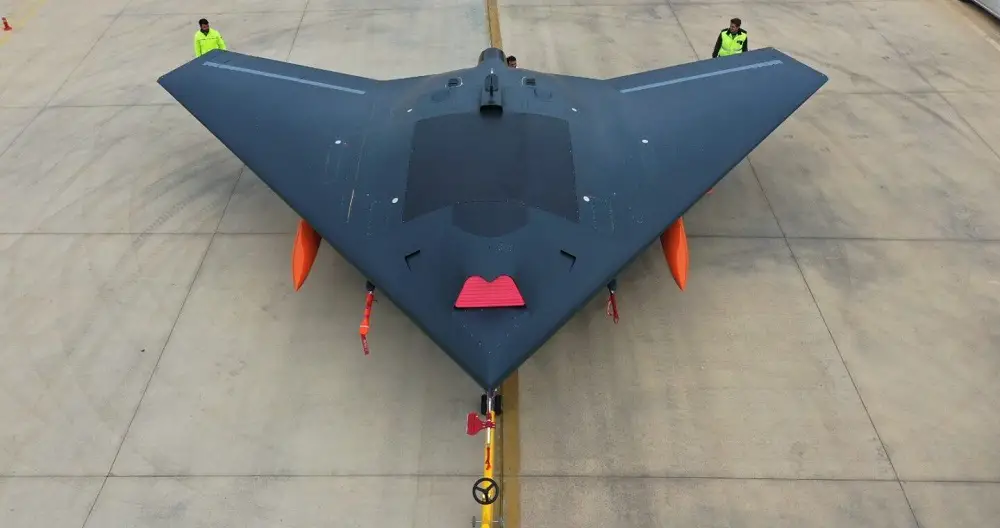Turkish Aerospace Industries (TAI) has revealed the technical futures of Anka-3 deep-strike stealth unmanned combat aerial vehicle (UCAV). On March 18, Turkish Aerospace CEO Temel Kotil shared a tweet of the developmental Anka-3. Anka-3 is a developmental aircraft designed to fly alongside Turkey’s in-development TF-X fighters on strike, surveillance, electronic warfare (EW) and tactical bombing missions. The features and concept visuals of the aircraft have been revealed which shows a low-observable stealth technology with a flying-wing design. The state-of-the-art platform is expected to make its maiden flight this year. The released image shows the drone carrying a Simsek loitering munition under each wing.
The TAI Anka is a family of unmanned aerial vehicles developed by Turkish Aerospace Industries primarily for the Turkish Air Force. Envisioned in the early 2000s for aerial surveillance and reconnaissance missions, Anka has evolved into a modular platform with synthetic aperture radar, precise weapons and satellite communication. Turkish Aerospace Industries offers the aircraft in two versions, Anka-B and Anka-S. Anka-I was developed specifically for Turkey’s National Intelligence Organization for signal intelligence. Anka has accumulated more than 90,000 flight hours as of March 2021. The drone is named after Phoenix, a mythological creature called Zümrüd-ü Anka in Turkish.
The Anka-3 will have the same avionic architecture and ground control stations as Anka and Anka-2 unmanned combat aerial vehicles (UCAVs), also developed by TAI. It also has a high-speed transfer capability, allowing quick deployment to remote areas. With a maximum takeoff weight of 6,500 kilograms (14,330.1 pounds) and a practical load capacity of 1,200kg, it can carry a wide range of payloads. The Anka-3 can fly at a service altitude of 40,000 feet and withstand flight for up to 10 hours at 30,000 feet. It can travel at 250kts/0.42M at 30,000 feet, while its maximum speed reaches 425kts/0.7M at the same altitude.
The system also features LoS/BLOS (Satellite Control) capabilities, allowing for efficient communication and control. It boasts a range of job descriptions, including air-ground Suppression and Destruction of Enemy Air Defenses (SEAD/DEAD) missions, IGK (Intelligence-Reconnaissance-Observation) and electronic warfare (EW). Anka-3 also features external weapons. Among the weapons that can be attached to the outer stations are general-purpose bombs with TEBER-82 and TEBER-81 guidance kits. With a weight of around 7 tons, Anka-3 is expected to be equipped with an AI-322 or an equivalent turbofan engine, ensuring high performance and reliability.












